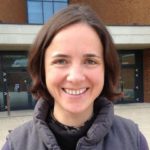CIED Director and Co-Directors

Prof Benjamin Sovacool
Professor Benjamin K. Sovacool, is Director of the Centre on Innovation and Energy Demand and of the Sussex Energy Group. Benjamin is also Professor of Energy Policy at the Science Policy Research Unit (SPRU). Professor Sovacool works as a researcher and consultant on issues pertaining to energy policy, energy security, climate change mitigation, and climate change adaptation. More specifically, his research focuses on renewable energy and energy efficiency, the politics of large-scale energy infrastructure, designing public policy to improve energy security and access to electricity, and building adaptive capacity to the consequences of climate change. Benjamin is also Co-PI of the INNOPATHS (Innovation Pathways, Strategies and Policies for the Low-Carbon Transition in Europe) research project.

Prof Frank Geels
Professor Frank Geels (Co-Director, Theme leader, Diffusion) is Professor of System Innovation and Sustainability at the Sustainable Consumption Institute, University of Manchester and chairman of the international Sustainability Transitions Research Network. Frank is a world-leading scholar on socio-technical transitions and has published six books and more than sixty peer- reviewed articles in this area, many of which are highly cited. Geels has extensive experience in research management, acting as PI on a prestigious ERC-funded project (‘Destabilisation of sociotechnical regimes as the key to transitions towards sustainability’, 2008-2012), a project funded by the Dutch TransForum programme (‘Historical and future transitions in agriculture and food’, 2007-2008), and a project funded by the Dutch Knowledge Network on System Innovation (‘Historical Transition Pathways’, 2004-2007). Geels has acted as consultant for DEFRA (two reports on sustainability transitions), The World Wildlife Fund (which has adopted his multi-level perspective to structure their strategic thinking), the Dutch Ministry of Economic Affairs (which adopted transition management in the energy sector), and Dutch practitioners working ‘on transition projects.

Dr Tim Schwanen
Dr Tim Schwanen (Co-Director, Theme leader Emergence) is Associate Professor in Transport Studies and Director of the Transport Studies Unit at the University of Oxford. He is currently also a Visiting Professor in Human Geography at the School of Business, Economics and Law at the University of Gothenburg. Tim’s research is international in outlook, interdisciplinary in scope and located at the intersection of urban, transport, cultural, political and economic geography. It covers a wide range of themes and topics relating to cities and the mobility of people, good and information, including processes of transition towards low-energy and just mobility systems. In 2013-2015 he was the editor-in-chief of Journal of Transport Geography and currently serves on the editorial advisory boards of nine academic journals in geography, transport studies and sustainability research.

Prof Steven Sorrell
Professor Steven Sorrell (Co-Director, Theme Leader Impacts) is a Professor of Energy Policy in SPRU, member of the Sussex Energy Group (SEG) and Honorary Senior Fellow at the Centre for Environmental Policy, Imperial College. He has more than 20 years of experience in energy and climate policy research, with a particular focus on market based instruments, resource depletion, energy efficiency and rebound effects. Steve has (co)-authored three books, forty peer-reviewed papers, twelve book chapters and more than one hundred research reports on various aspects of energy and climate policy. He has extensive experience in leading multi-disciplinary, multi-partner research projects for RCUK and the European Commission and has acted as consultant to the European Commission, the UN, UK government departments, the Environment Agency, the Sustainable Development Commission, private sector organisations and NGOs.
CIED Researchers

Dr Lucy Baker
Dr Lucy Baker is a research fellow in the Centre on Innovation and Energy Demand (CIED) based at Sussex Energy Group (SEG) of SPRU, University of Sussex. She is also a visiting fellow at the Energy Research Centre, University of Cape Town. Prior to joining CIED, Lucy was a research fellow in the School of Global Studies, University of Sussex on an ESRC-funded project, Rising powers and the low carbon transition in Southern Africa. Within CIED Lucy’s research focuses on energy intensive users, particularly the UK steel economy. Her other areas of research include: the political economy of energy; energy finance; electricity policy in South Africa; and low carbon development in low & middle income countries. Lucy also works on the INNOPATHS (Innovation Pathways, Strategies and Policies for the Low-Carbon Transition in Europe) research project.
Lucy holds a PhD in the political economy of socio-technical transitions in South Africa’s electricity sector, from the University of East Anglia, an MSc in Development Studies from the School of Oriental and African Studies and an MA in Hispanic Studies and French from the University of Edinburgh. Prior to joining academia she worked for ten years in the fields of environment, development and human rights as a policy officer and campaigner with the non-governmental organisations Amnesty International, Oxfam and Bretton Woods Project. Lucy is a native speaker of English and fluent in Spanish, Portuguese and French.

Dr Noam Bergman
Dr Noam Bergman joined SPRU in 2015 as a Research Fellow in CIED. His interests lie in systemic perspectives on energy use and societal shift to sustainability, often using transitions theory. His previous research includes microgeneration and its role in a shift to a low carbon future; local and community initiatives for energy and emission savings; and social innovation and its potential. He also has experience developing modelling tools, including agent-based models for assessing sustainability implications of future scenarios. He previously worked at the University of Oxford and the University of East Anglia, including work on the EU MATISSE project on integrated sustainability assessment. Noam trained as a natural scientist, and has a BSc in physics and an MSc in environmental sciences, both from the Hebrew University, and a PhD in Environmental Sciences from the University of East Anglia.

Prof Tim Foxon
Tim Foxon is Professor of Sustainability Transitions at the SPRU – Science Policy Research Unit, University of Sussex (2015-present). Tim’s research explores technological and social factors relating to the innovation of new energy technologies, the co-evolution of technologies and institutions for a transition to a sustainable low carbon economy, and relations and interdependencies between energy use and economic growth. Tim joined CIED in September 2016 to carry out research on Reorienting investments and divesting from fossil fuel assets divestment and Energy Demand and the UK Steel Economy. He was previously a Reader in Sustainability and Innovation and RCUK Academic Fellow, Sustainability Research Institute (SRI), School of Earth and Environment, University of Leeds (2007-2015), a Research Associate, Cambridge Centre for Climate Change Mitigation Research, University of Cambridge (2005-2007) and a Research Associate/Lecturer, Centre for Environmental Policy and Centre for Energy Policy and Technology, Imperial College London (1996-2005).

Dr Andrew Hook
Andrew has joined SPRU as a Research Fellow in Energy Justice and Transitions. He works on the Innovation Pathways, Strategies and Policies for the Low-Carbon Transition in Europe (INNOPATHS) project, which examines the socio-technical dimensions of low carbon energy transitions in the EU, particularly questions of energy justice. He also works on other SPRU projects, such as Digital Society and Energy Demand. As well as being a member of CIED, he is also a member of the Sussex Energy Group and the STEPS Centre. Prior to joining SPRU, Andrew was completing his PhD in Human Geography at Sussex, where he examined the political economy and political ecology of green transitions within the small-scale gold mining sector in Guyana. In between completing a BA in Economics and Politics at Sheffield, an MSc in Development Studies at SOAS, and an MSc in Social Research Methods here at Sussex, he spent several years working in the Development sector, most recently as a Consultant for the UNDP and an ODI Fellow in Guyana.

Dr Debbie Hopkins
Dr Debbie Hopkins is a departmental research lecturer at the Transport Studies Unit and the School of Geography and the Environment, and a Junior Research Fellow in Geography at Mansfield College, University of Oxford. Debbie has a master’s degree (with distinction) from King’s College London, and a PhD from the University of Otago. Debbie joined the TSU in 2016 as a research fellow, and previously worked as a research fellow on the Energy Cultures II research programme at the Centre for Sustainability (New Zealand). She also completed postdoctoral training at the Centre for Sustainability and the Otago Climate Change Network (OCCNet), University of Otago. Debbie is a human geographer, with research expertise in socio-spatial interpretations and experiences of environmental issues. Her research is broadly concerned with the social dimensions of climate change, the social practice of mobilities, and low-carbon transitions. Debbie has published widely on these topics, and in 2016, co-edited a book on Low Carbon Mobility Transitions.

Dr Victoria Johnson
Dr Victoria Johnson is Research Associate at the Sustainable Consumption Institute (SCI), University of Manchester. She is an experienced interdisciplinary and widely published researcher in the fields of climate change and energy policy at the domestic and international level. To date, she has led or contributed over 35 policy-relevant publications in these fields. Her principal research interests relate to the mechanisms and societal implications of socio-technical transitions across a range of spatial scales with a particular reference to power, agency, social justice and international development. Based at the SCI, she is primarily comparing patterns of diffusion of low-energy technologies (district heating, light-rail networks, and Passivhaus) in the UK with other European countries. Victoria joined the SCI and CIED in September 2014 from the Low Carbon Research Institute of Wales, based at the Welsh School of Architecture, Cardiff University. Here her work focussed historical transitions in the UK energy sector and institutional transformation necessary for distributed low-carbon electricity generation in the UK. Between 2007 and 2012 Victoria led the research programme on climate change and energy policy at leading independent think tank, NEF (New Economics Foundation). She holds a PhD in Atmospheric Physics from Imperial College, a MSc (awarded with distinction) in Climate Change and a BSc in Environmental Sciences, both from the University of East Anglia.

Dr Paula Kivimaa
Dr Paula Kivimaa is a Senior Research Fellow at SPRU, Senior Researcher at the Finnish Environment Institute and has an affiliation of Docent at Aalto University, Finland. She has over ten years’ experience in research dealing with the interface between environmental innovations and climate, energy, transport and environmental policies. Her recent research is focused on analysing transport and energy policy as well as intermediary organisations from the perspective of sustainability transitions. She has experience in managing several projects funded by Finnish research funding agencies. She has published scientific articles in journals such as Research Policy, Environmental Policy and Governance, Environmental Politics, Journal of Cleaner Production, and Transport Geography as well as research reports issued, for example, by the Nordic Council of Ministers and the Partnership for European Environmental Research.

Dr Mari Martiskainen
Dr Mari Martiskainen is a Research Fellow at the Centre on Innovation and Energy Demand. Mari joined SPRU in 2006 and has worked on a range of research projects including topics such as building energy efficiency policies, innovation processes linked to community energy, influences on household energy consumption and the diffusion of small scale renewable energy technologies. Mari completed a PhD in Science and Technology Policy Studies at SPRU in 2014, she has an MSc in Environmental Technology from Imperial College London and a BA in Social Sciences from the University of Helsinki, Finland.

Dr Karoline Rogge
Dr Karoline Rogge is Senior Lecturer in Energy Policy and Sustainability in SPRU, and Senior Researcher at the Fraunhofer Institute of Systems and Innovation Research. Karoline’s interdisciplinary research focuses on the link between policy and innovation in the energy sector, and ranges from studying the innovation impact of single policy instruments, such as the EU emissions trading system, to evaluating the effects of comprehensive policy mixes for promoting the low carbon transition. Karoline has extensive project management experience and in-depth knowledge of German, European and international climate policy. She has advised the German government for ten years, including as a member of the scientific secretariat of the German Emissions Trading Stakeholder Group and has acted as a consultant to the OECD and World Bank. Karoline is currently leading the GRETCHEN project investigating the influence of the policy mix for renewables on technological and structural change in Germany.

Prof Karen Turner
Karen is Director of the Centre for Energy Policy at the University of Strathclyde International Public Policy Institute. She has previously held academic posts at in the Economics Departments at Heriot-Watt, Stirling and Strathclyde Universities. Karen was one of six ESRC Climate Change Leadership Fellows and her main research interests in modelling the economy-wide impacts of energy and climate policy. The main focus of her current work is investigating economy-wide rebound effects and macroeconmic impacts of energy efficiency enhancing and/or carbon reduction technologies such as CCS. Karen was Principle Investigator on the EPSRC ‘Working with the [EUED] Centres project titled ‘Energy Saving Innovations and Economy-wide Rebound Effects’

Prof Jan Webb
Janette Webb is Professor of Sociology of Organisations at the School of Political and Social Science, University of Edinburgh. Her research concerns social studies of energy and climate change and she is the Principal Investigator of the Reframing Energy Demand: Innovation for Sustainable Heat (REDish) project, run in collaboration with CIED. This research group is studying comparative European heat and energy efficiency policies and practices. Professor Webb’s other research includes the Heat and the City project that is focused on urban energy governance and organisation in globalising markets. Further work is analysing local engagement in energy developments and evaluating the Scottish Energy Efficiency Pilot projects. She also works with Informatics engineers on living labs and social interactions with digital systems for energy feedback.
Additionally, Professor Webb is a member of Scottish Government Fuel Poverty Review Panel and Expert Commission on District Heating and Regulation; UK Government BEIS Steering Group on Heat Networks and Consumer Protection Research; UK Nominated Expert to the International Energy Agency Programme on District Heating and Cooling; and was Chair of the 2016 Advisory Group on Heat and Energy Efficiency, UK Committee on Climate Change. She is a Trustee of environmental charity, SNIFFER, which is responsible for Scotland’s Climate Change Adaptation programme.
Communications and Impact Team

Ms Nora Blascsok
Nora Blascsok helps CIED with promoting research to a wider audience. This involves looking after the CIED website, writing and editing content as well as organising CIED-funded events. Nora also manages the CIED Twitter account and helps with stakeholder engagement in a variety of other ways. She has a background in International Relations, gaining a distinction in her MA from the School of Global Studies at Sussex University.

Ms Ellie Leftley
Ellie Leftley joined CIED in December 2017 as the Research Support and Communications Assistant. Ellie has recently graduated from the University of Exeter in which she completed her BA Geography degree. Her role is to support CIED with events organisation, monitoring and reporting activities.
PhD Students

Mr Donal Brown
Donal Brown has 6 years experience in sustainable construction and consultancy, with an academic background including a First class BSc in Environmental Science and Distinction in Climate Change and Policy MSc. Donal has also recently undertaken a CIED research project, into the status and bariers to low energy buildings in the UK. A sustainable energy specialist with extensive experience in the low carbon housing sector, Donal has technical knowledge of renewable energy systems as well as Passivhaus and energy efficient design. His research background includes climate and environmental science, energy policy, innovation and energy economics. He is also Sustainability Director of a eco-housing design and build firm which provides consultancy services.

Mr Duncan Edmondson
Duncan Edmondson joined CIED in September 2015, working as a doctoral researcher on a project focusing on policy mixes for innovation and energy demand. With a background in Environmental Science (BSc; University of Leeds), Duncan previously completed an MSc at SPRU in Energy Policy for Sustainability for which he undertook a project researching Legitimacy in Technological Innovation Systems, applied empirically to the offshore wind sector in the UK. Duncan’s research engages with the politics of transitions, and the co-evolutionary dynamics of policy mixes and socio-technical systems. Empirically, the project investigates the Zero Carbon Homes target in the UK. The target (announced in 2007), mandated all new-build domestic buildings to achieve zero carbon by 2016, but was subsequently denounced in 2015. From such an instance of apparent policy ‘failure’, he aims to draw lessons for the design of policy mixes for sustainability transitions.

Sofia Kesidou
Sofia Kesidou joined SPRU as a doctoral researcher in September 2015 and her research focuses on supply chain integration within the construction industry and its impact on the delivery of low energy innovations in non-domestic buildings. Sofia has 14 years experience in sustainability consulting within the construction sector, having worked with major commercial, infrastructure and industrial developers and building owners in delivering sustainable and cost-effective solutions for their property portfolios. Through her roles as a sustainability specialist, a project sustainability champion, and a BREEAM/LEED advisor and assessor, Sofia has gained an understanding of the organisation and dynamics of project teams, the benefits of an integrated design process and integrated teams and the positive effects of collaboration between disciplines in the delivery of project objectives. Sofia is a certified project manager and has managed a large number of sustainability consultancy projects working for one of the largest global multi-disciplinary consulting engineering firms. She holds a BA(Hons) in Architectural Studies and an MRes in the Built Environment with Distinction.

Bryony Parrish
Bryony Parrish joined Sussex in 2016. Her PhD research investigates UK residential user engagement with heat pumps and demand response, two technologies that are expected to contribute significantly to decarbonisation, but remain largely unfamiliar in the UK. Previously Bryony worked as a Research Assistant at Imperial College (ICCEPT), in sustainability consultancy and as a secondary school science teacher.